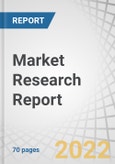The global patient engagement technology market is projected to reach USD 27.9 billion by 2027 from USD 17.3 billion in 2022, at a CAGR of 10.0%. Extensive research on the patient engagement technology market has brought to light that when patients are engaged in their health care, it leads to measurable improvements in hospital safety and quality of care. Active patient engagement is a prerequisite to better healthcare delivery. Considering the ongoing and rapid change occurring in the healthcare industry, hospitals are focusing on various ways to engage their patients to improve the care delivery process and allow informed decision making by physicians.
Aligned with this trend, healthcare providers, payers, and patients are increasingly adopting patient engagement technology that provides benefits to them as well as their patients and customers.
Below is the list of some of the benefits of Patient Engagement Technology:
- Benefits To Clinics And Hospitals (Providers)/Payers
- Increased patient satisfaction and experience
- Improved clinical outcomes and quality of care
- More timely appointments and reduced rate of no-shows
- Assistance in meeting Meaningful Use (MU) criteria
- Reduction in hospital readmission rates
- Increased patient retention
- Reduce overall cost
Benefits To Patients
- Easy access to health information - Patients can easily access medical information anytime, anywhere through patient engagement technology or platform
- Easy communication between patient and provider - E-visits and secure messaging aids patients communicate with providers using their mobile devices.
- Monitor treatment progress effortlessly - Patients can opinion and share their medical records and obtain test results on their mobile devices
- Increased patient satisfaction: Greater understanding of care through PES; the inbuilt value-based care program feature in PES enables patients to pay mainly for the value care received.
Reasons to Buy the Report:
The report will enrich both established firms as well as new entrants/smaller firms to gauge the pulse of the market. Insights cited in the report will help these firms stay competitive and garner a greater market share. It will enlighten the stakeholders about the benefits of embracing patient engagement technology. The study analyzes the total economic impact (TEI) of patient engagement technology on organizations and highlights the enabling value of a technology in increasing the effectiveness of overall business processes.
Firms purchasing the report could use the below-mentioned information for strategy development, market penetration, product development/innovation, and strengthening respective market shares.
The report provides insights on the following pointers:
- Pricing assessment: This section contains comprehensive information on pricing of patient engagement technology with breakdown into various cost components such as licensing fees, implementation fees, annual license maintenance fees, up-gradation and integration fees, and consulting fees
- Hospitals buying behavior assessment: This section provides insights into the adoption trend of patient engagement technology in the hospital setting. The section analyses hospital buying behavior taking into account the size of the hospital and considering the role of key stakeholders in the hospital. It provides insights on major use cases of physicians and patients.
- End-user market potential analysis: This section dissects the potential of various end-user segments and provides insights to stakeholders as to which end-user segments are most lucrative for investment
- Vendor replacement trends: This section provides exhaustive information on vendor replacement trends for patient engagement technology
- Factors triggering replacement trends: Several factors are responsible for the replacement of vendor of patient engagement technology. This section provides a deep dive into such factors.
- Role of mobile in patient engagement: This section provides detailed information on current implementation status (2021) of mobile technology used for patient engagement against various applications.
- Selection criteria for patient engagement technology (provider perspective): This section provides an in-depth assessment of critical factors that providers perceive as most important or less important while purchasing a patient engagement technology.
Table of Contents
Table Information
| Report Attribute | Details |
|---|---|
| No. of Pages | 70 |
| Published | September 2022 |
| Forecast Period | 2022 - 2027 |
| Estimated Market Value ( USD | $ 17.3 Billion |
| Forecasted Market Value ( USD | $ 27.9 Billion |
| Compound Annual Growth Rate | 10.0% |
| Regions Covered | Global |









